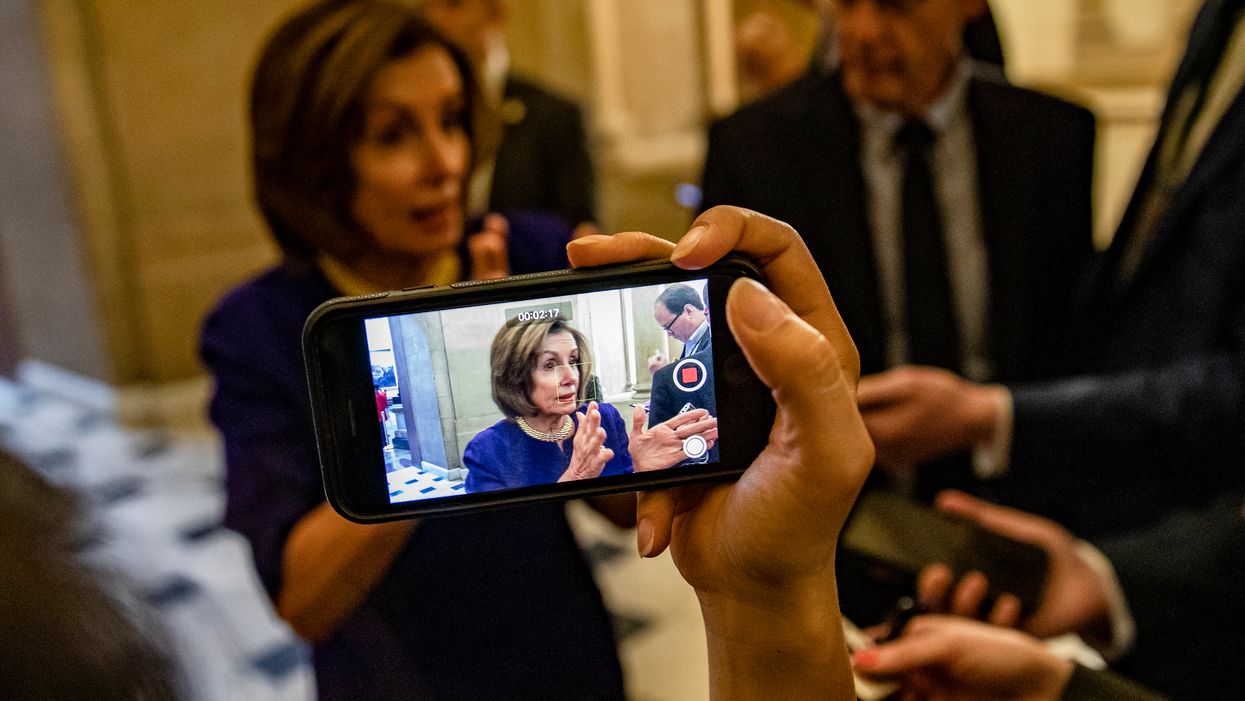Hawkings is the founding editor-in-chief of The Fulcrum and previously spent three decades as a reporter and editor focused on the culture, policymaking and politics of Congress.
We were thrilled and, to be honest, flattered when Daniel Schuman of Demand Progress and Marci Harris of Popvox Inc. asked us to rush to publish their opinion piece Wednesday night, urging Congress not to go home before enacting special legislation allowing the House and Senate to convene in cyberspace until the coronavirus threat has passed.
Their shared expertise on the legislative branch is unimpeachable, their intention is obviously well-meaning and constructive, and their case is on the verge of being persuasive. That's why we published the op ed!
But in the end their argument is trumped by another that's even more compelling than the need for rapid efficiency in the face of a pandemic: The already beleaguered institution of Congress would be more harmed than helped by such a move.
Coming to the floor of the House or standing in the well of the Senate to cast hundreds of "yes" or "no" votes every year — standing in front of your colleagues, of both parties, and announcing how you want yourself and your constituents recorded on the great and small matters of the day — is the most elemental responsibility of a member of Congress.
Beyond that, there's near universal agreement that the polarizing tribalism and partisan gridlock that are the hallmarks of Congress today have metastasized because the members have hardly any personal relationships anymore, especially between elected Republicans and elected Democrats. Interpersonal connections are named time and again by politicians as the central ingredient for cross-partisan legislative collaboration and compromise.
But they are few and far between in Congress these days, and of course there's no way things would get any better if members were free to remain in their hometowns, totally isolated from one another, and asked to dial into Zoom to monitor debates before casting a ballot on their smartphones.
It's clear we sentient beings have all five senses for a reason — which is in part to give us the power of reason. When it comes to policymaking, there is no substitute for being able to see, hear, touch, smell and even (metaphorically) taste the sentiments of your allies, rivals and opponents.
Even though the once proud traditions of congressional "debate" long ago devolved into so much predictable speechmaking, there's still no substitute for making sure all members get into "the room where it happens" as Lin-Manuel Miranda put it with his succinct eloquence — although unlike what happened in "Hamilton" it's also crucial the voters get to watch all of what's going on.
Maybe that's why, just this week, the legislatures of Massachusetts and Rhode Island rebuffed proposals to permit voting remotely during the pandemic.
Even before Covid-19, Capitol Hill was a roiling petri dish of potential infections — filled every day with thousands of tourists, thousands of congressional staffers, hundreds of advocates and lobbyists, and dozens of journalists along with the 535 people elected to legislate. So it was hardly a surprise Thursday when the congressional campus was declared off limits until April 1 to everyone without official business, and almost all in-person meetings were called off and legions of aides were told they could start teleworking.
That should limit lawmakers' exposure to the coronavirus significantly, now that the Senate and maybe the House too will be working into next week to finish economic stimulus legislation -- and, if some of a scheduled recess happens, when they return the week of March 23. And, with her calmly insistent tone, Speaker Nancy Pelosi made clear that Congress would remain at its historic post when deliberating other pandemic response bills.
"Our writing of legislation, the exercise of ideas, that won't stop" at the Capitol even if the place is otherwise emptied, she said — an echo of her declaration days earlier that elected legislators are "the captains of the ship; we are the last to leave."
Imagine if she'd said otherwise. Millions of voters with an already low opinion of Congress would have derided any "send them home until further notice" move as an abandonment of duty. And it could have very well signaled that the last balance-of-powers fight in Washington was over, the legislative branch's capitulation to executive power complete.
The unpredictable but fast-spreading coronavirus may yet force the Senate and House to exercise their powers to convene outside Washington, and emergency alternate meeting sites could be readied relatively quickly. Rapidly arranging for secure but virtual sessions, especially at a time when fears about intensified foreign hacking into elections are so intense, seems out of the question as a practical matter.
Beyond that, creating even the sort of temporary and emergency authority for Congress to make decisions online, as Harris and Schuman suggest, would be an irreversible cyber-camel's nose under the legislative tent.
Once members had a taste of life casting votes from their couches, or anywhere in the world, the pressure would be enormous to make Congress into nothing more than a party-line voting app.




















Marco Rubio is the only adult left in the room